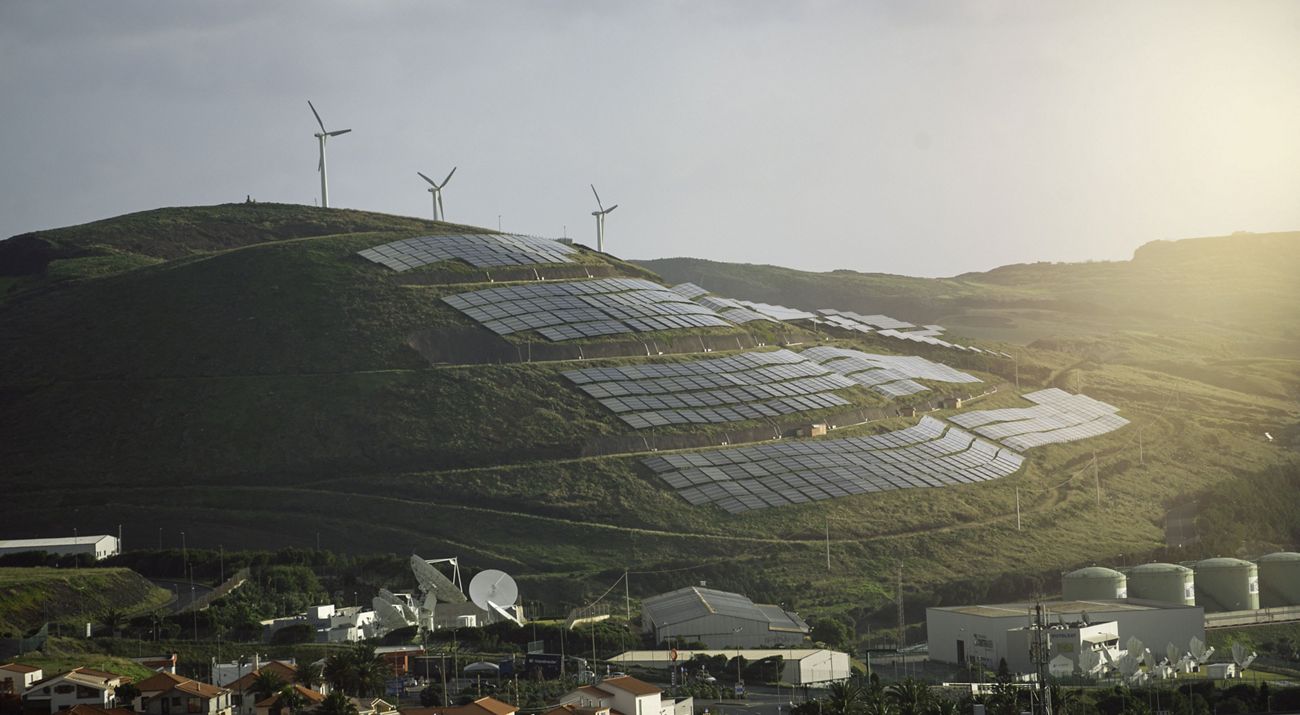New Collaboration Launches to Accelerate Renewable Energy in Portugal in Harmony with Priorities for Nature and People
TNC, LNEG and APREN Join Forces to Map Suitable Locations for Wind and Solar Development to Ensure a Clean, Green and Equitable Energy Transition

Media Contacts
-
Bridget Nurre Jennions
The Nature Conservancy
Email: bridget.jennions@tnc.org -
Sónia Fonseca
Laboratório Nacional de Energia e Geologia (LNEG)
Email: comunicacao@lneg.pt -
Diogo Carvalheda
The Portuguese Renewable Energy Association (APREN)
Email: diogo.carvalheda@apren.pt
The Nature Conservancy (TNC), Laboratório Nacional de Energia e Geologia (LNEG) and The Portuguese Renewable Energy Association (APREN) have forged a groundbreaking collaboration to support Portugal’s ambitious energy transition agenda. This strategic alliance brings together environmental expertise, scientific research, and stakeholder engagement to drive sustainable energy solutions for the country.
Under a newly signed Memorandum of Understanding, the organisations will work in close collaboration with all relevant Portuguese stakeholders, including Portuguese environmental NGOs, to identify optimal areas for solar and wind energy projects while respecting ecological and cultural values. The resulting map aims to help Portugal’s policymakers, public bodies, investors, and developers to meet the EU’s mandate for the designation of Renewable Acceleration Areas (RAAs) by February 2026.
Building on LNEG’s pioneering research released earlier this year, the project will deploy TNC’s smart siting methodology already used in the United States, India, Croatia, and across the Western Balkans to meticulously assess Portugal’s terrain to pinpoint prime locations for solar and wind energy projects. These acceleration areas will be selected based on environmental suitability, technical feasibility, and alignment with Portugal’s ambitious commitment to a 90% share of renewable electricity by 2030.
The project, which will conclude in early 2026, was initiated during a workshop in February to establish objectives and potential barriers. The group highlighted the importance of kicking off this work well ahead of the RAA deadline to enable high-quality public consultation and effectively sequence requirements for environmental assessment and national spatial mapping.
Elif Gündüzyeli, Renewable Energy Program Director for Europe, TNC:
“Portugal has an opportunity to set the pace for renewable acceleration in Europe, but they must go smart to go fast. We are thrilled to be working with Portugal’s leading authorities on renewable energy and environmental protection to help deploy TNC’s smart siting methodology and ensure that wind and solar deployment is done in harmony with priorities for nature and local communities.”
Teresa Ponce de Leão, President of the Governing Board, LNEG:
“Our country has excellent conditions for renewable energy production, but also for (eco)tourism, agriculture, and other economic development possibilities. These are possible since Portugal also has valuable ecosystem services that need to be preserved. We believe this collaboration can contribute to harmonize both and thus accelerate our country’s sustainable and just energy transition.”
Pedro Amaral Jorge, CEO of APREN – The Portuguese Renewable Energy Association:
“As Portugal advances on the energy transition path, defined at a European level and reflected in the Portuguese National Energy and Climate Plan 2030, it becomes increasingly imperative to overcome all barriers to the installation of renewable power in the country. One of the difficulties continues to be the slowness of the permitting processes for renewable projects due to lack of consensus on synergies in multiple uses of the territory. We believe that this partnership can help to speed up knowledge and acceptance and thus contribute to accelerating an energy transition that is intended to be fast, fair and effective, ensuring that Portugal seizes the opportunity to contribute to the country’s competitiveness and security.”
###
Notes to Editors:
The National Laboratory of Energy and Geology (LNEG) is a governmental R&D institution oriented to meet the needs of society and business. Its mission is to advance scientific knowledge, promote sustainable energy solutions, and contribute to economic development. LNEG, as one of the institutes of Ministry of Environment and Energy, is also a consultant of the government in its public policies. Key activity areas include Resource Economics, Solar Energy – heat and electricity (PV and CSP), Wind and Ocean Energy, Energy in the Built Environment, Smart Cities, Energy System Integration, Bioenergy (Biorefineries, Biofuels, Biomass), Circular Economy, Biomass for Industry, Hydrogen, Materials for Energy, Geological Resources, Geology and Geological Risk, Mineral Technology and Geo-information.
The Portuguese Renewable Energy Association (APREN) is a non-profit association founded in October 1988. Its mission is to coordinate and represent the common interests of its members, promoting renewables energies in the electricity field. APREN works together with official bodies and other similar entities, at national and international level, constituting an instrument of participation in energy and environmental policies through the use and valorisation of natural resources for electricity production, namely in the fields of hydro, wind, solar, geothermal, biomass, biogas and urban solid waste.
The Nature Conservancy is a global conservation organization dedicated to conserving the lands and waters on which all life depends. Guided by science, we create innovative, on-the-ground solutions to our world’s toughest challenges so that nature and people can thrive together. We are tackling climate change, conserving lands, waters and oceans at an unprecedented scale, providing food and water sustainably and helping make cities more resilient. The Nature Conservancy is working to make a lasting difference around the world in 83 countries and territories (39 by direct conservation impact and 44 through partners) through a collaborative approach that engages local communities, governments, the private sector, and other partners. For more news, visit our newsroom or follow The Nature Conservancy on LinkedIn.